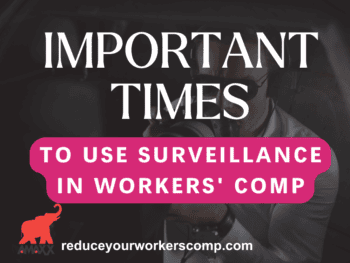Social networking through electronic means such as Facebook, Twitter, and YouTube are increasing in our culture. The harvesting or “mining” of data such as personal status updates, photos and videos and posted activities and events is a form of surveillance that can uncover the true abilities of workers’ comp claimants. Recent news stories illustrate how insurers have discovered fraud through investigating social networking sites.
New York First Responders
The New York Times published an article on January 7, 2014 about 106 people indicted on fraud charges that cost the government $21.4 million in false disability claims. New York lawyer Raymond LaVallee and several police “facilitators” coached former police officers and firefighters in how to appear disabled during medical exams and hearings. What is truly outrageous is that many of these former cops claimed that they were so traumatized by the events of the 9/11 tragedy that they were permanently psychologically damaged. Former cops who told doctors that they were too traumatized to leave home had posted Facebook pictures of themselves fishing, riding motorcycles and jet skis, flying helicopters and playing basketball. One man who claimed he couldn’t work was teaching martial arts. The scheme is thought to go back to 1988 involving over 1,000 people, many who are former cops and firefighters collecting pensions, who may have bilked the government out of an estimated $400 million.
Click Link to Access Free PDF Download
“The 5Cs to Taking a Bulletproof Injured Worker Recorded Statement”
Boy Scout Leaders and Boulders
A videotape went viral that showed Boy Scout Leaders pushing over an ancient rock formation. The men flexed their muscles for the camera after toppling the huge boulder. It was then discovered that one of leaders in the video was a man who had claimed in a personal injury lawsuit that he had disabling back injuries from an auto accident.
Workers’ Comp Claimants Shown to be Actually Working
In some workers’ comp cases fraud has been found where claimants said they were unable to work but their Facebook statuses showed they were working. This happened in the New York case of Muniz and the Ohio case of Wheeler.
Privacy Rights
Some employee lawyers claim that it is an invasion of privacy to use surveillance on employees’ personal social media sites. However, some courts have said there is not a privacy interest in social networking information even where the employee has limited their privacy settings because the information is available to at least some third parties, that is the people they have “friended.” In the New York case of Romano v Steelcase the court said that deleted MySpace and Facebook posts had to be shown to the employers’ attorneys during the discovery proceedings in the case.
Of course, employers and insurers must gather and preserve this information with the same legal considerations as they do for other forms of surveillance such as videotaping. Employers looking to use this form of surveillance may want to consult their legal counsel first.

























